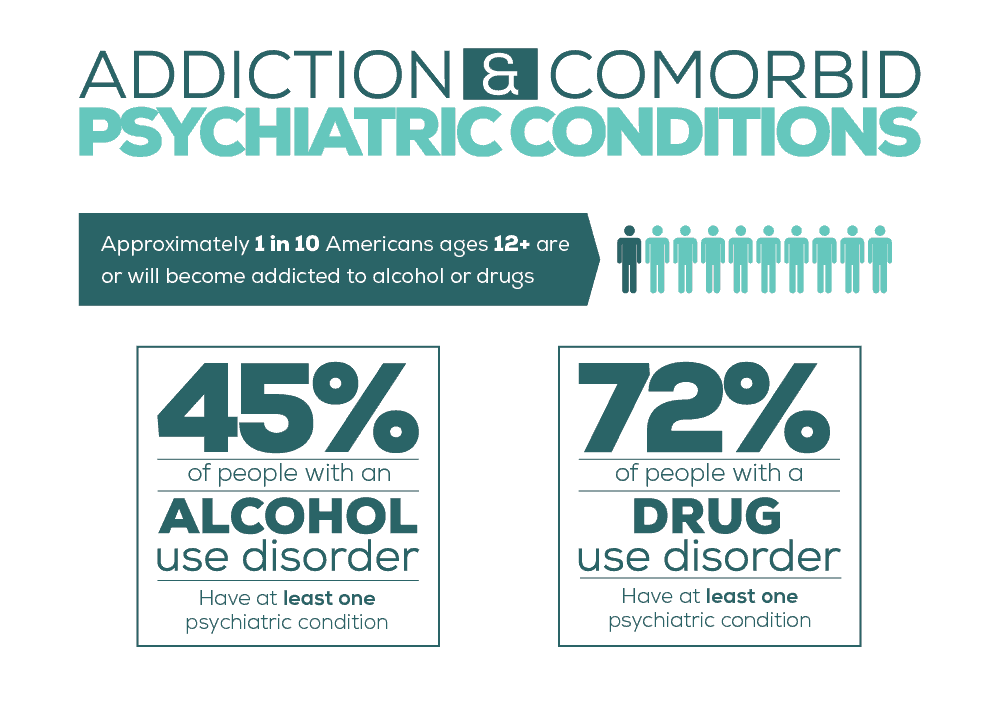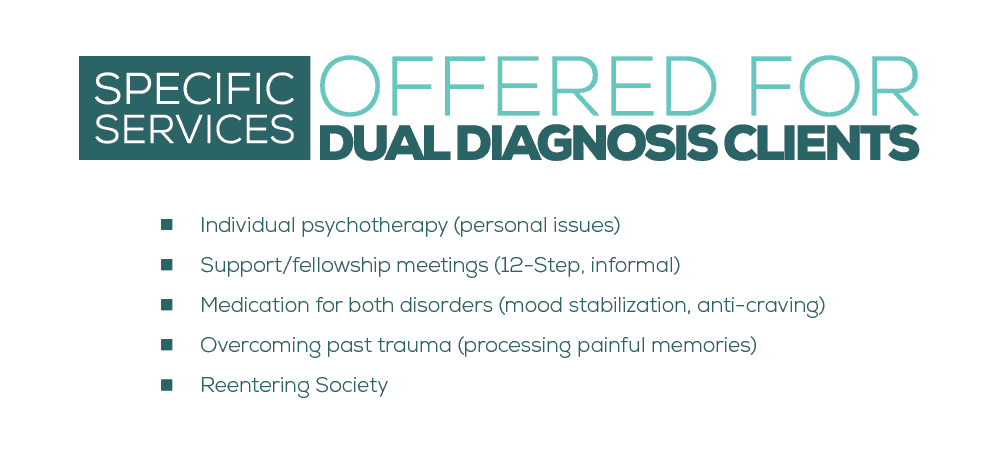“(Terry) was dealt a double cruel hand: the companion demons depression and alcoholism. They were demons that warred ceaselessly against the other aspects of her being – a warm and sunny disposition” ~US Sen. George McGovern, Terry Dealing with one major disorder – substance abuse – is hard enough. But very frequently, addiction is also accompanied by one or more psychiatric disorders – depression, anxiety, PTSD, schizophrenia, etc. When it is determined that a person has and both a substance abuse and a psychiatric disorder, they have what has been termed a “dual diagnosis”. 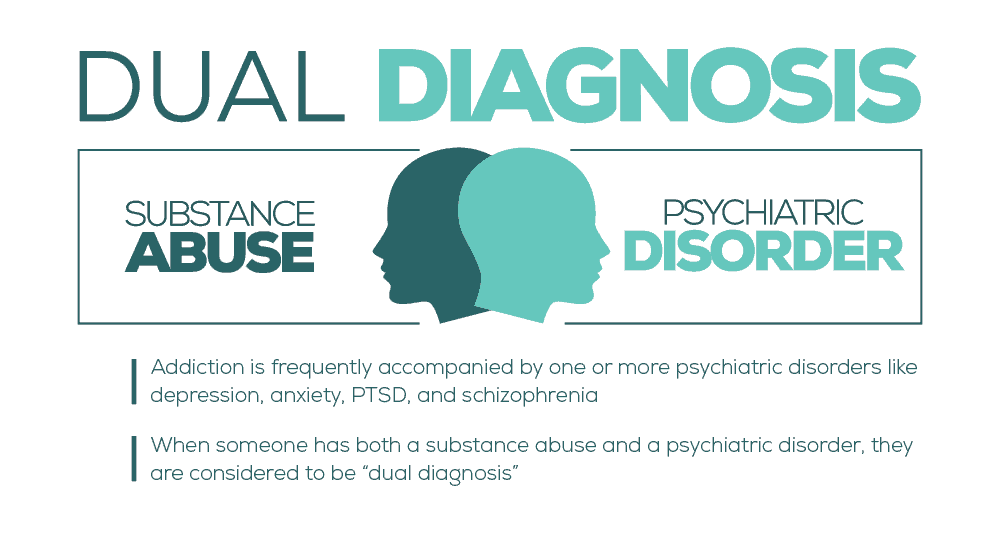 In Washington State – as it is across the country – finding effective, evidence-based drug and alcohol rehab can be challenging. That challenge is intensified when the person seeking treatment also needs help for a co-occurring disorder that must be addressed simultaneously.
In Washington State – as it is across the country – finding effective, evidence-based drug and alcohol rehab can be challenging. That challenge is intensified when the person seeking treatment also needs help for a co-occurring disorder that must be addressed simultaneously.
How Common Are Dual Diagnoses in Washington State?
Unfortunately, exact numbers on addiction and mental illness are hard to come by, because so many people associate these disorders with a shameful stigma. But we can do some extrapolating, using accepted statistics.
- Approximately 1 in 10 Americans ages 12 or older are or will at some point become addicted to alcohol or drugs. Washington State has just over 7 million residents, with roughly 80% of those being 18 or older. Doing the math, that means there are more than 560,000 people in Washington state who have or will have a substance abuse disorder at some point.
- Of those, 45% of people with an alcohol use disorder and 72% of those with a drug use disorder have at least one comorbid psychiatric condition.
- More than half of individuals with a dual diagnosis do not receive psychotherapeutic or medical treatment intended to help them with their recovery from addiction.
- Only about 40% receive any treatment for either disorder.
- Less than 5% receive treatment for BOTH disorders.
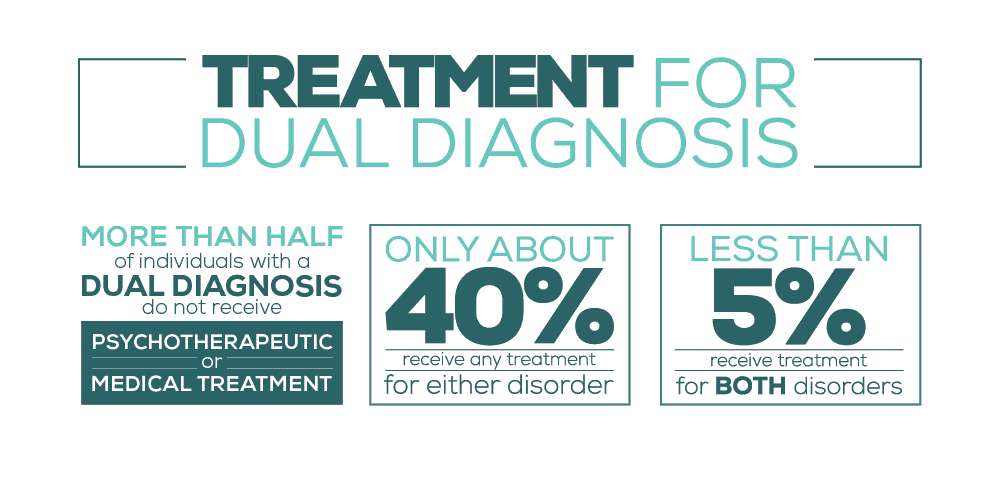 It’s easy to see that there are potentially hundreds of thousands of Washington residents struggling with co-occurring disorders right now. But if you are one of them, how do you sort through all the online lists of inpatient dual diagnosis treatment centers in Washington State and find the one that is right for YOU?
It’s easy to see that there are potentially hundreds of thousands of Washington residents struggling with co-occurring disorders right now. But if you are one of them, how do you sort through all the online lists of inpatient dual diagnosis treatment centers in Washington State and find the one that is right for YOU? 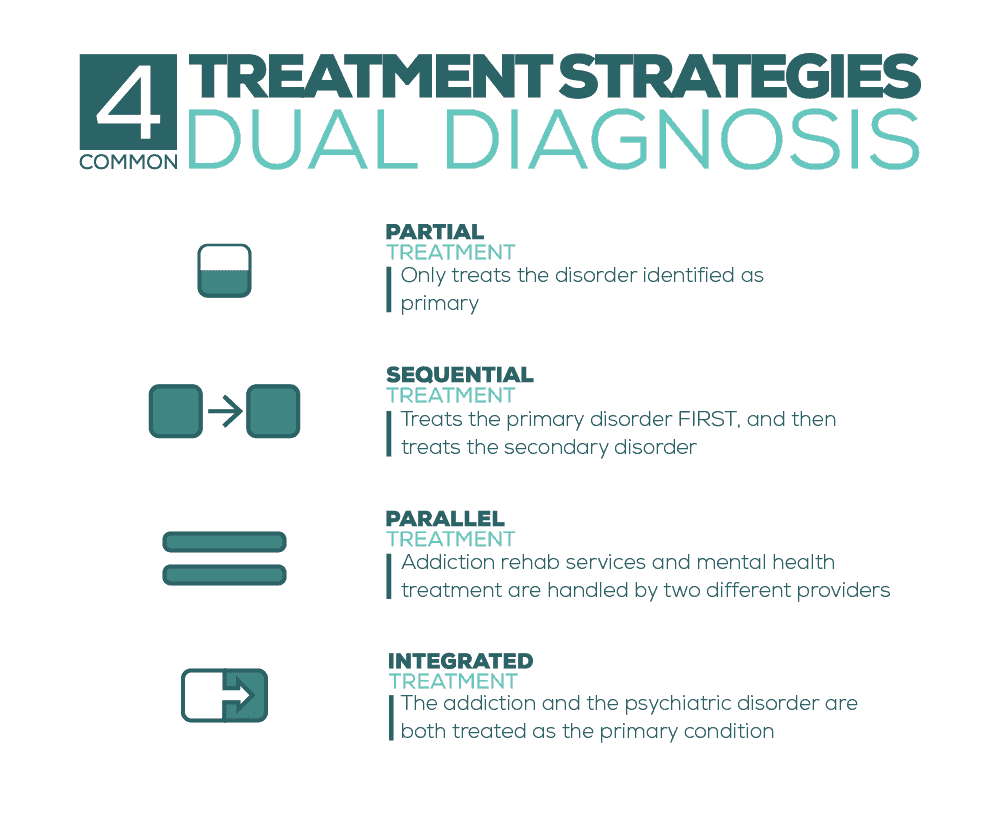
FIRST – Only Consider Those Dual Diagnosis Centers That Offer “Integrated” Treatment
There are four common treatment strategies for dual diagnoses:
- Partial treatment – treats only the disorder identified as primary
- Sequential treatment – treats/stabilizes the identified primary disorder FIRST, and then treats the secondary disorder
- Parallel treatment – addiction rehab services and mental health treatment are handled by two different providers
These were the only options for decades. But there are limitations to each.
- Partial treatment ignores the other disorder, setting the stage for relapse of either condition.
- Sequential treatment unnecessarily prolongs treatment, and again, because one disorder is temporarily ignored, the likelihood of relapse increases.
- Parallel treatment, while an improvement over the other options, can be needlessly complicated if the separate service providers do not share a common treatment philosophy.
Now, the Substance Abuse and Mental Health Services Administration has determined that the fourth approach – integrated treatment – is in the best interests of the patient. Integrated treatment means that each treatment provider works collaboratively at the same dual diagnosis center, under the umbrella of a shared, cooperative treatment philosophy. With this philosophy, the addiction and the psychiatric disorder are both treated as the primary condition. 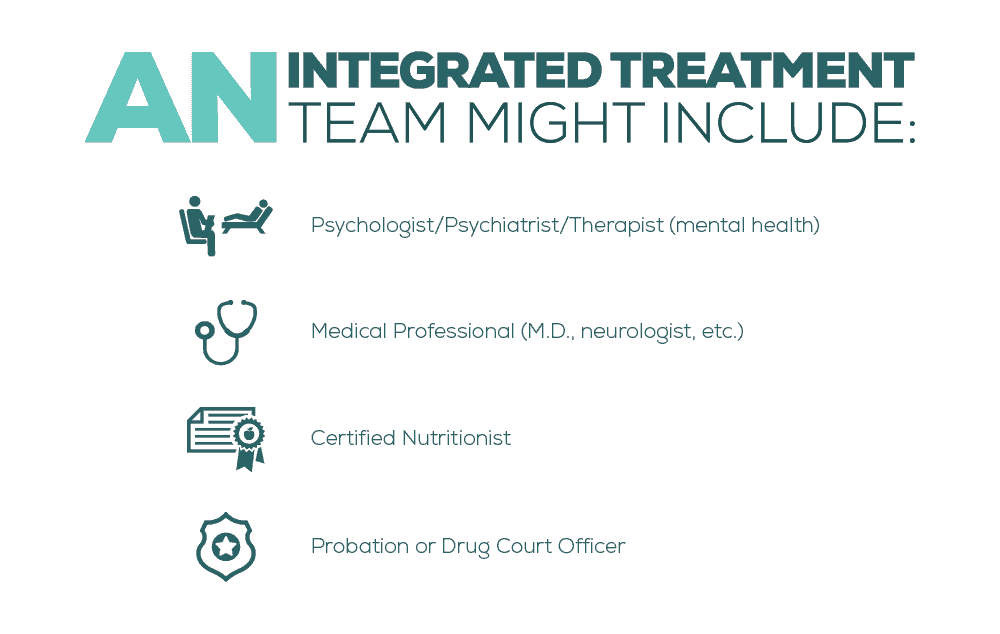 Integrated treatment requires communication and cooperation between everyone involved – the service professionals, the patient, legal entities, and even family members and friends. The treatment team might include:
Integrated treatment requires communication and cooperation between everyone involved – the service professionals, the patient, legal entities, and even family members and friends. The treatment team might include:
- Psychologist/Psychiatrist/Therapist (mental health)
- Substance Abuse Specialist (addiction)
- Medical Professional (M.D., neurologist, etc.)
- Family Therapist
- Certified Nutritionist
- School or Vocational Counselor
- Spouse/Partner/Close Family Members & Friends
- Sponsor from Alcoholics or Narcotics Anonymous
- Social/Child Protective Services Caseworker
- Presiding Judge
- Probation or Drug Court Officer
SECOND—Ask About the Specific Services Offered for Dual Diagnosis Clients
The best inpatient dual diagnosis treatment centers in Washington state will treat comorbid disorders with an array of simultaneous services, including:
- Individual psychotherapy (personal issues)
- Group therapy (common issues)
- Couples/family counseling (family issues/codependency)
- Support/fellowship meetings (12-Step, informal)
- Medication for both disorders (mood stabilization, anti-craving)
- Education about both mental illness and substance abuse (management strategies)
- Life skills (communication, anger management, parenting)
- Identifying triggers (avoiding people, places, and things associated with substance abuse)
- Coping skills (everyday frustrations and temptations)
- Stress reduction techniques (meditation, breathing, yoga)
- Overcoming past trauma (processing painful memories)
- Healthy nutrition (craving reduction, harm repair)
- Exercise routine (healthy activity)
- Employment Coaching
- Connection with housing resources
- Reentering Society
- Anti-relapse techniques and contingency plans
Because a proper treatment plan should always be tailored to the individual, the more service options an inpatient dual diagnosis treatment center in Washington State offers, the more likely they have the services that YOU need to succeed.
THIRD – Verify That They Accept Your Insurance
Affordability is the most-frequent objection brought up by people in need of drug or alcohol rehab. Thanks to the Affordable Health Care Act, insurance carriers are required to cover substance abuse treatment services, including those that are included in a dual diagnosis. That’s good news, because if you have insurance, your coverage could mean little to no out-of-pocket expense. However, inpatient dual diagnosis treatment centers in Washington State are not likewise required to accept every insurance plan. Before you schedule a tour of the facility or an intake assessment, save yourself time and hassle by asking a simple verification question.
FOURTH – Tour the Facility
Depending upon where you live, this may not be practical, but if it IS, visiting the treatment center beforehand can go a long way to easing some of your apprehension. One of the keys to successful completion of a treatment plan is the level of comfort you feel with the program, the accommodations, and the staff at a particular treatments center. Here’s the bottom line – finding the RIGHT inpatient dual diagnosis treatment center in Washington State requires a bit of homework and possibly, a little legwork, but those efforts will be well worth it when you receive timely and efficacious treatment that maximizes your chances of successful recovery from both your addictive and your psychiatric disorders.
What Did you Think About This Blog?
Give it a Rating!

